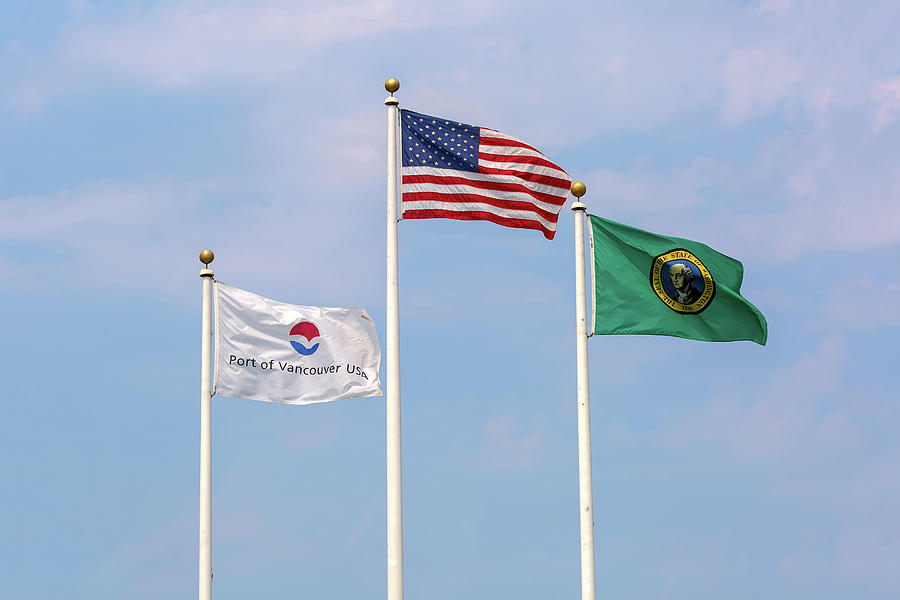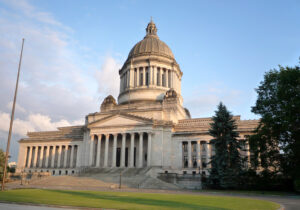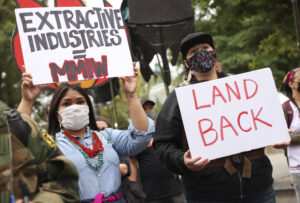Washington capital gains tax could hinge on lawsuit over bank tax
4 min read
A lawsuit filed against Washington’s 1.2% business tax on financial institutions could ensure taxpayers will pay the state’s new capital gains tax.
Filed by the Washington and American Bankers Associations last year, the lawsuit concerns the state’s 1.2% business and occupation (B&O) tax on banks earning $1 billion a year in the state. The excise tax, passed in 2019 as House Bill 2167, almost doubled the B&O tax rate on banks from 1.5% to 2.7% as of Jan. 1, 2020 to fund childcare assistance. It’s projected to raise $133.2 million this year and $205.6 million by 2025. Critics argued it would push investors out of the state if it survived the courts.
The original lawsuit claimed the bill “suffered from a flawed legislative process” by setting an “unconstitutional differential tax rate for in-state and out-of-state financial institutions.”
Introduced as a title-only bill, HB 2167 was hit with several clarifying amendments and was signed into law by Gov. Jay Inslee 48 hours after its first hearing in the House and 24 hours after receiving a fiscal analysis.
In May of 2020, King County Superior Court Judge Marshall Ferguson ruled the tax’s purpose and effect discriminated against out-of-state banks. He described it as “illegal, invalid, and unenforceable, because it discriminates in effect and in purpose against interstate commerce in violation of the dormant Commerce Clause of the United States Constitution.”
The state appealed the verdict and received its first hearing before the Supreme Court of Washington on Tuesday. The high court heard arguments in defense of the bill from state Solicitor General Noah Purcell and against it by Orrick law partner and one-time GOP gubernatorial candidate Rob McKenna.
Testifying to the court, McKenna said that 153 financial institutions paid the tax in the first quarter of 2020. Three of them, he said, were Washington-based. The other 150 shouldered 99.74% of the tax burden. McKenna claimed the statistic demonstrated the tax’s disproportionate effect on national banking giants.
Washington is one of three states, including Ohio and West Virginia, to have B&O taxes. The state’s excise tax is applied to gross sale proceeds ranging from 0.138% to 1.5%. B&O taxes have acted as a workaround for state lawmakers to tax businesses without running afoul of the Washington constitution’s ban on income taxes.
In his opening argument, Purcell told justices that state law restricts taxpayers from filing preemptive lawsuits over state taxes before their collection. If the court concurs, the principle could set a precedent for two lawsuits against the 7% tax on capital gains signed into law by Inslee this month. The capital gains tax, which takes effect in 2022, would be given at least one tax cycle before it could be challenged in 2023.
The former state attorney general raised eyebrows on the court by citing several statements by state lawmakers during a House floor debate on April 27, 2019 as evidence the bill was aimed at out-of-state banks.
“The surtax targets out-of-state banks that participate in interstate commerce,” McKenna said. “Legislators were assured by the bill’s sponsor on the floor that only out-of-state banks would pay it.”
McKenna pointed to remarks made by state Rep. Gael Tarleton, D-Ballard, from April 27, 2019 on the House floor concerning the tax’s effect on “mega banks.”
“It’s never easy with tax policy to address the upside down tax code that we have because we’re always relying on a few sources of revenue and that’s sales tax and B&O tax,” Tarleton said. “So this tax on mega banks is what’s going to give us a chance to make sure that we’re putting people first.”
Purcell objected, arguing that Tarleton’s speech was taken out of context and did not represent the bill’s intent.
One of the chief cases referenced during Tuesday’s hearing was the 1981 ruling in Commonwealth Edison Co. v. Montana by the U.S. Supreme Court in which the state’s per-ton severance tax on coal mining by out-of-state utilities was upheld. Purcell argued the state’s B&O tax hike on banks operates under the same idea.
“A small or medium sized bank that’s based in Portland is treated exactly the same as a small and medium sized bank that’s based in Vancouver,” Purcell said. “So banks, like Umpqua bank, based in Oregon, can operate extensively in Washington without paying a tax and a bank that’s based in Washington that has over a billion dollars in profit doesn’t pay the tax.”
The state supreme court has not stated when it expects to issue a ruling on the B&O or capital gains tax lawsuits.
This article was originally posted on Washington capital gains tax could hinge on lawsuit over bank tax







